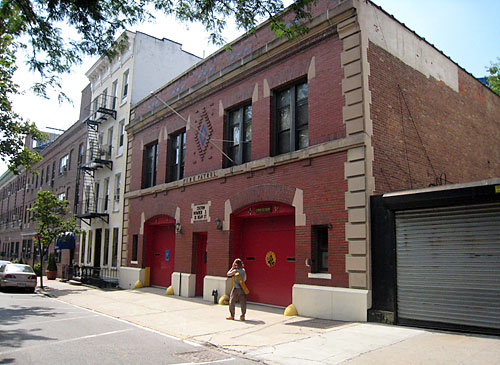An elite private school’s expansion plans in Cobble Hill have renewed debate about its decision last year to cut a highly touted special education program.
The Brooklyn Heights Montessori School, on Bergen Street in Cobble Hill, recently purchased an old firehouse on nearby Dean Street from the city as part of its goal to increase the enrollment of the 250-seat institution by about 40 new pupils.
“The ability to expand our campus, and to be able to do it at one location, will allow us to fulfill our current strategic plan of growing our enrollment and further strengthening programmatic excellence,” Dane Smith, the head of school, said in a statement announcing the purchase last month.
Those plans also call for moving the Little Room, the award-winning program for 27 special needs 3- and 4-year-olds, to another organization, possibly the League Treatment Center, a center in DUMBO for children and adults with autism and other disabilities.
Any deal would require state approval.
Some worry that future special ed students will lose the developmental benefits that come from being around mainstream classes if they’re taught in isolation.
“It’s very disheartening,” said Joyce Creidy, the mother of twins graduating this summer from the Little Room. “The Little Room is in a nice space in a real school. The League [Treatment Center] is more of an institutionalized setting.”
A call to the League was not returned.
The push to separate the Little Room from the Brooklyn Heights Montessori School is due to irreconcilable fina ncial and philosophical differences, Smith said, explaining that the state-regulated special-ed track is incompatible with the independent Montessori teaching model, in which students do not receive grades.
It’s also a drain on the school’s resources because the state’s reimbursements do not cover the Little Room’s expenses. Its students do not pay tuition either.
“It couldn’t sustain itself. We would have had to cut staff salaries,” Smith told The Brooklyn Paper. “The physical plant is costly. The state will only pay so much for overhead.”


























